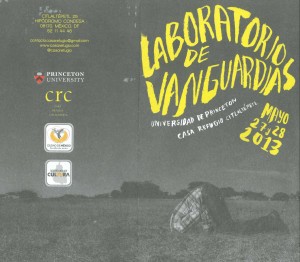Description: This new course examines the role of social markers of difference — such as race, class, nationality and gender — in issues of global health. For example: How can racial or gender discrimination affect access to health services and life expectancy? “Studying health paired with markers of difference lets us address the social and political determinants of vulnerability and disease,” said João Biehl, the Susan Dod Brown Professor of Anthropology, who helped develop the course. “It is somewhere in the middle of social lives that the work of critique always begins, and we need integrated approaches that recognize the profound interdependence of health, economic development, good governance and human rights,” said Biehl, who is also co-director of the Program in Global Health and Health Policy.
Instructors: Peter Locke, a lecturer in the Woodrow Wilson School of Public and International Affairs; Lilia Moritz Schwarcz, a professor of anthropology at the University of São Paulo (USP) and a Princeton Global Scholar; Laura Moutinho, a professor of anthropology at USP; José Ricardo Ayres, a professor of preventative medicine at USP; and Didier Fassin, the James D. Wolfensohn Professor at the Institute for Advanced Study. “Collaborating with our colleagues from the University of São Paulo has affirmed how essential it can be to explore complex issues from the vantage point of different intellectual traditions and social and historical contexts,” Locke said. “As we constructed the syllabus, the faculty from USP challenged us to broaden our sense of what materials could be relevant and to bring literatures and scholarly debates produced in other parts of the world into an equal conversation with our own bodies of knowledge.”
Continue Reading

